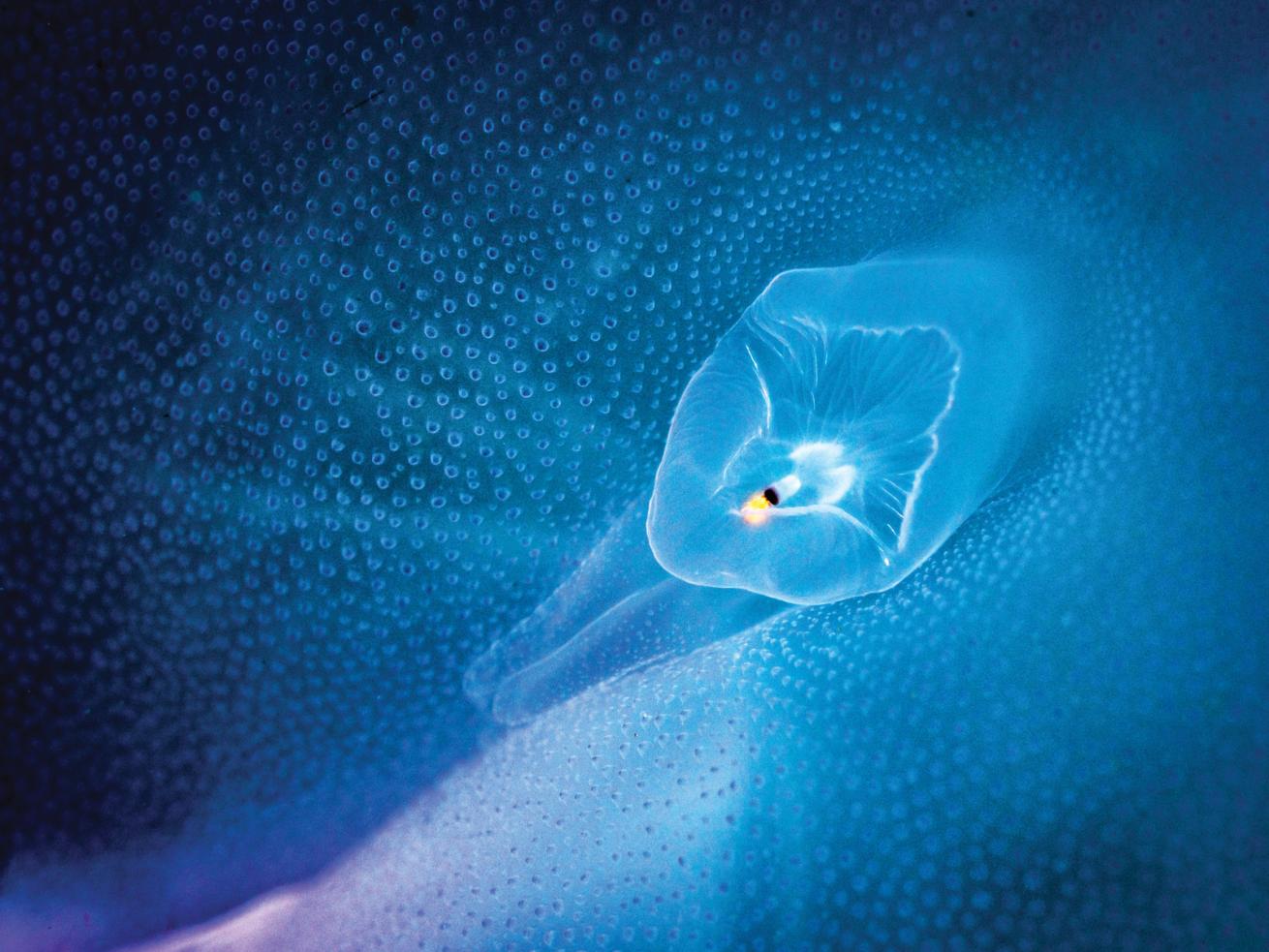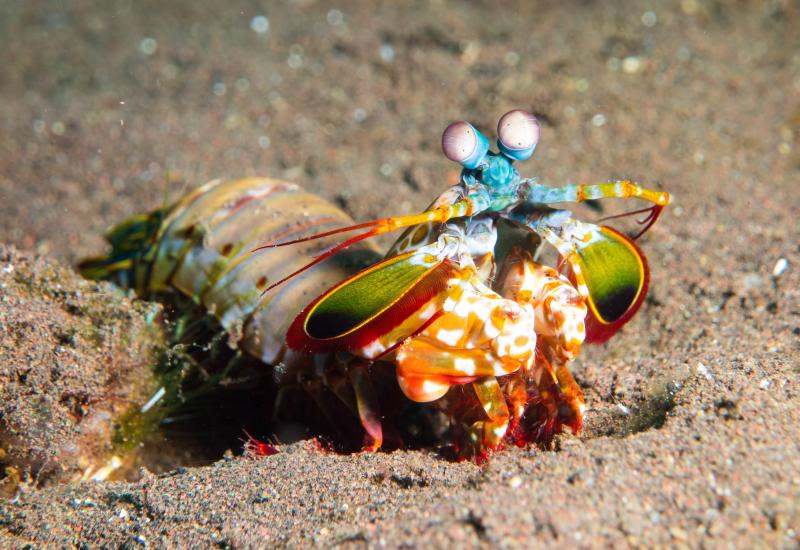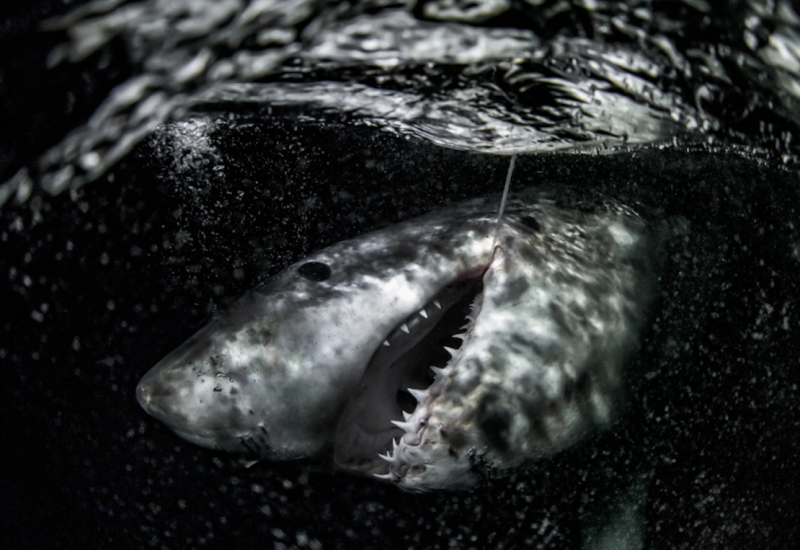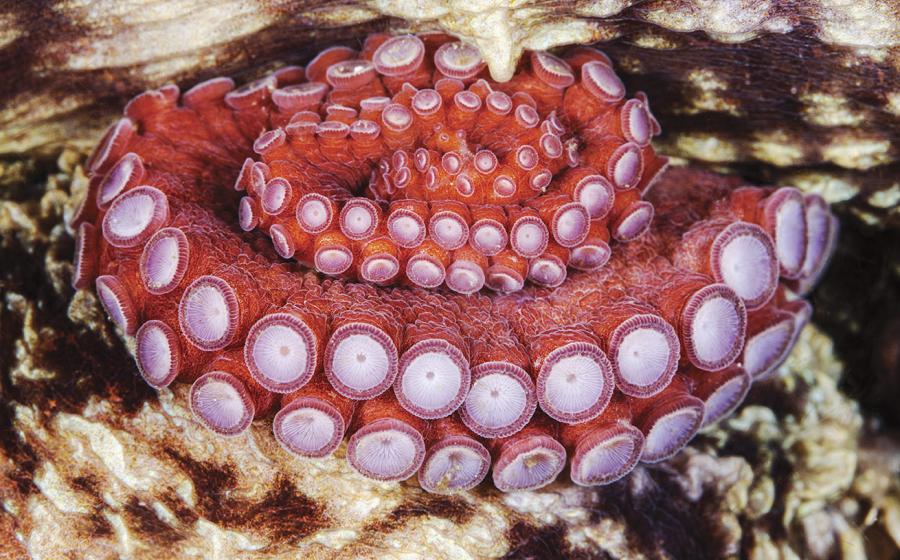Jellyfish and the Art of Mindful Underwater Photography

Patrick WebsterGetting up close and personal with an Aurelia labiata moon jelly reveals its otherworldly rhopalium—a specialized sensory organ.
Take a camera diving,” they said! “It’ll be so much fun,” they said! As meditative and mindful as scuba diving can be, it can also be overcomplicated. While developing skill trends with efficiency and minimalism in the mountains, each fin kick forward into the tank-based ocean arts seems like a briar patch of advanced certifications, gear configurations and— shudder—photo equipment!
I remember when I could dive without a camera, how light I felt punching through the surf, and how my eyes—rather than which lens I brought—chose what I got to see. I love sharing the ocean through photography. And sometimes that means cursing into your camera housing, muffled swears just another bubbly blip on the surface.
“Ugh, maybe I should just call it!”
I’d brought the wrong lens. Conditions were surging, suboptimal and unconducive to macro shots. This “unproductive” dive was a camera-induced nightmare unthinkable to the just-happy-to-be be here Basic student I once was.
“What a headache, I just—”
Bloop.
A squishy bonk on the noggin snaps me out of the spiraling reverie. It was a pregnant female Aurelia labiata moon jelly. Her translucent glowing body was beautiful and mesmerizing.
“Wow… Definitely more of a wide-angle subj- wait, never mind!”
Related Reading: Ocean's Calling
Suddenly, I’m inspired. Jellyfishes like Aurelia have been a part of the ocean landscape for 700 million years or more. They’re “heartless, brainless and spineless” as pop-sci loves to describe them. But what they may lack in organs doesn’t make them any less of an organism— in fact, jellies are astute observers of oceanographic conditions, their “simplicity” a cover for the efficiency that has allowed them to outlive and outlast a majority of more “sophisticated” creatures.
Instinctively, I raise my camera to the lazily pulsing bell. There, tucked away in one fold of the frilly margin is a flowery- looking structure catching my focus light and all of my attention. I start firing— hoping to get good focus on this spectacular speck no bigger than the em dash in this sentence. After a momentary midwater struggle, I get the shot. I head back to the beach and straight into postprocessing. What’s staring back at me on the screen is still difficult to wrap my head around. It’s one of the jelly’s eight rhopalia, a sensory outpost on the outer rim of this gelatinous inner-space station.
At the base of this ghostly Venus’ flytrap, above two leggy lobes, is a bright spot known as a statocyst. Akin to our inner-ear, this calcium carbonate crystal orients the jelly up and down in a topsyturvy planktonic world. The darker patch is its eye—simple, yes, but enough to tell light from dark and coordinate the jelly’s daily migrations (and in the box jellies, the ability to navigate mazes of mangrove roots with some as-yet-to-be-determined image processing).
Related Reading: Is This The World's Wildest Nudibranch?
Above that, a fuzzy vestibule that may help the jelly keep its nose to the wind and catch a whiff of what lies ahead. Behind all of this, a cluster of 1,000-some neurons of a, for all intents and purposes, mini-mind is there to coordinate with the rest of its satellite offices, ready to release a reservoir of stem cells that may help rejuvenate and rebuild ravaged rhopalia. And all of this macro complexity tucked away in a microscopic valley between wobbling hills covered in mucusproducing hills of stinging nematocytes.
“Mind. Blown.”
It’s easy to overcomplicate things, especially the biology that makes us who we are. Expanding abilities come with insidious mind games that tie enjoyment to ever-increasing output, performance and acclaim. And at least when we’re diving, when those thoughts start to rear their ugly heads, maybe we can channel some wisdom from the rhopalium—a super processor almost a billion years in the thinking, content to just go with the flow and let the world come to you. It’s a mindfulness only the “brainless” can deliver.










